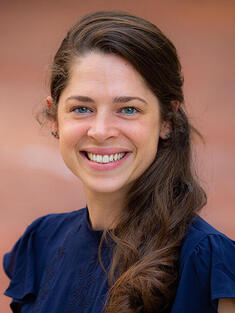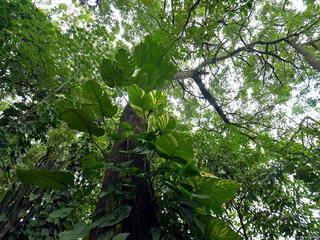Annika Terrana specializes in the global market and trade of forest products. Her expertise includes extensive knowledge of sustainable production and consumption systems and the mechanisms for demonstrating responsible environmental and social practices within deforestation-driving supply chains.
In her current role as director for forests at WWF-US, Annika works to advance long-term forest conservation at landscape scales, particularly through systems-based, cross-sectoral approaches, including at the intersection of forests and human health. She also acts as a technical expert for WWF on a variety of topics, encompassing improved standards for forest management; forest governance; and the co-benefits that come with healthy, resilient ecosystems.
In addition, Annika spearheads the WWF-US Forests and Health initiative in partnership with the world’s largest health-care company, Johnson & Johnson, among others. The initiative aims to document how deforestation can undermine human health and economies and how we can improve efforts to curb future disease outbreaks. Annika has also contributed extensively to WWF’s pandemic response, particularly as it relates to deforestation and degradation, creating a strategy to stop zoonotic disease spillovers at their source as part of a cross-organizational team.
Annika is integrally involved in the Mobile Basin Heirs’ Property Support Initiative, a two-year project launched in October 2021 by the Center for Heirs’ Property Preservation™ and the Mississippi Center for Justice with support from WWF and Kimberly-Clark. The new initiative provides a combination of legal services, information, and access to financial and forestry resources to help Mississippians resolve land title issues that disproportionately affect Black families and often lead to loss of property, wealth, and forest resources.
Before joining WWF, Annika managed membership engagement at the Forest Stewardship Council® US and directed operations for Organic Health Response (OHR). A nonprofit, OHR supports local communities on Lake Victoria in Kenya, helping them reclaim and reshape the relationship between overfishing, community health, and local deforestation. While with OHR, Annika contributed to a holistic, grassroots response to the impacts of HIV/AIDS. This included the local gazettement of old-growth forest and reforestation efforts to alleviate slope erosion and disrupt harmful feedback loops that exacerbated people’s health.
Annika has a bachelor of arts from the University of Wisconsin-Madison in history and certificates in environmental studies and African studies.



